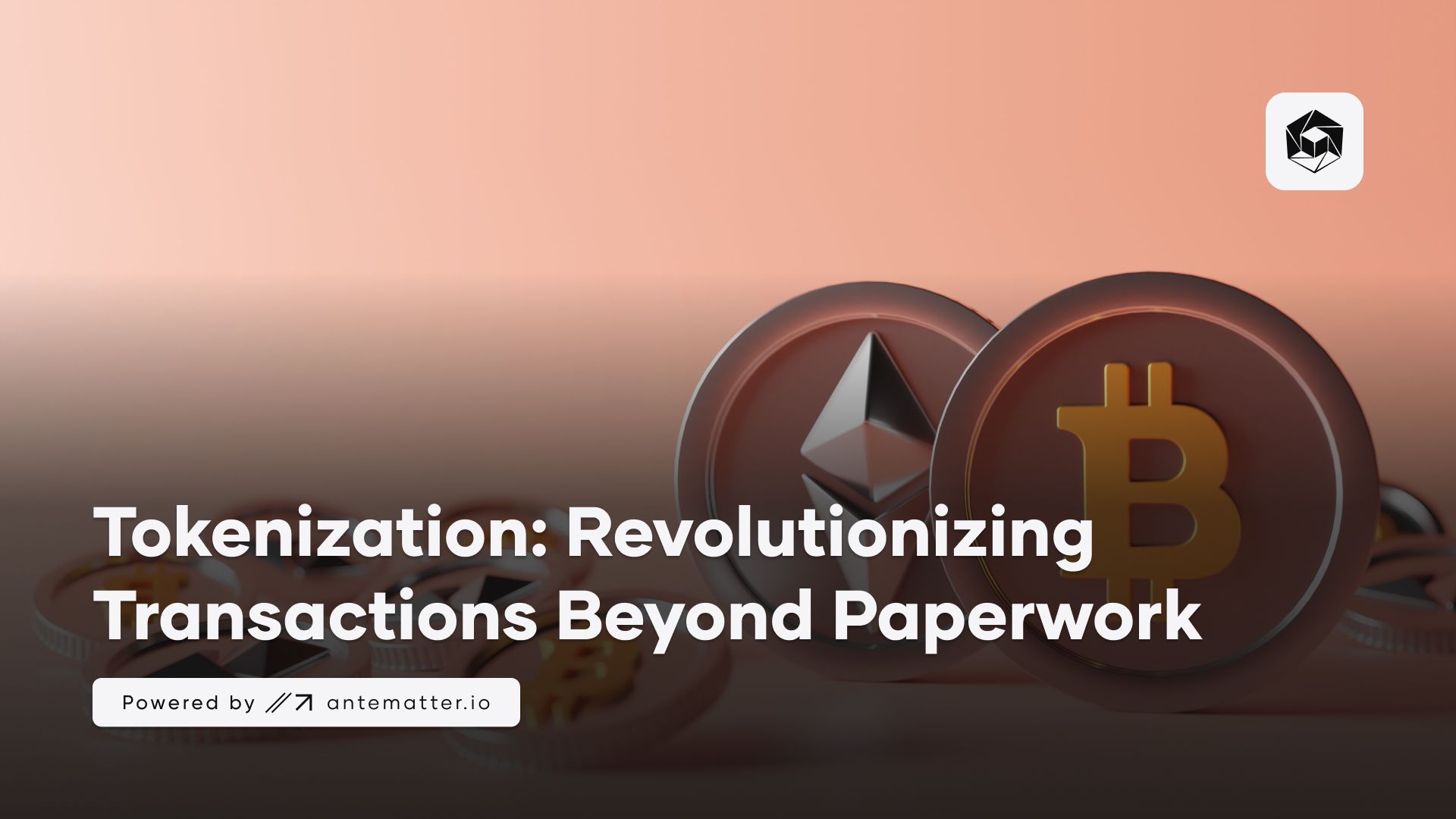Tokenization: Revolutionizing Transactions Beyond Paperwork
Tokenization is redefining financial transactions, eliminating the need for paperwork, and introducing a new era of transparency and efficiency. This blog delves into the transformative impact of tokenizing assets on blockchain, promising a seamless and secure future for the financial industry.

The financial world still depends heavily on paperwork, which slows things down and doesn't fit well with our fast-paced, high-tech lives. Even with digital signatures, we haven't managed to fix the problems that come with paper-based systems—they're still slow and often have mistakes.
However, there's a light at the end of the tunnel: tokenization and smart contracts are on the rise, offering ways to make things better and more efficient. These new tools could finally help us move away from all that paper and into a smoother, more reliable way of handling financial transactions.
Smart Contracts: The Digital Catalyst
Smart contracts are more than a leap forward; they are the digital catalyst for change. By self-executing and enforcing the terms of an agreement embedded in code, smart contracts negate the need for extensive paperwork, slashing through the red tape that slows down financial transactions.
The implications for sectors like banking, real estate, and legal are profound, offering a future where transactions are secured not by the stroke of a pen but by the certainty of code.
Tokenization: Redefining Asset Management
Tokenization is a revolutionary concept, transcending the digitization of signatures to a complete reimagining of asset management. By converting rights to tangible and intangible assets into digital tokens on a blockchain, tokenization promises a streamlined, transparent, and accessible means of managing and transferring assets.
It signifies a shift towards a more inclusive financial ecosystem where investments are no longer bound by the conventional limitations of physical documentation.
The Advantages of a Tokenized Economy
Tokenization presents a myriad of advantages, reshaping the very fabric of financial interactions:
- Increased Market Efficiency: With assets broken down into tokens, markets traditionally plagued by illiquidity can enjoy new levels of fluidity and trading ease.
- Transparency and Compliance: The blockchain's immutable ledger offers unparalleled transparency, making compliance and auditing more straightforward and less prone to human error.
- Accessibility and Inclusivity: By lowering entry barriers, tokenization allows a wider range of investors to participate in markets from which they may have previously been excluded.
- Instantaneous Processing: Eliminating the lag inherent in paper-based systems, tokenization enables immediate settlement of transactions, enhancing the velocity of business operations.
The Impact of Tokenization on Financial Transactions
In a tokenized world, every financial transaction becomes a testament to efficiency and security. Real estate transactions can be completed in minutes rather than months, and complex financial instruments like derivatives can be traded with a new level of clarity. The ripple effects will be felt across the economy, as businesses and individuals alike gain access to a broader range of assets and investment opportunities.
The Transformation of Financial Services
As tokenization gains momentum, financial services are poised for a transformation. Banks and investment firms will need to adapt their infrastructure to accommodate this new mode of asset management. The role of intermediaries may shift, as the blockchain's decentralized nature allows for direct peer-to-peer interactions. This is not just an incremental improvement but a complete overhaul of the transactional experience.
Tokenization: The Tipping Point for Decentralization
The widespread adoption of tokenization could be the tipping point for a broader move towards decentralization in the financial sector. With the blockchain providing a secure, decentralized platform for transactions, the need for centralized authorities and intermediaries is reduced, potentially leading to a more democratized financial system.
The Future Shaped by Tokenization
As we stand on the brink of this transformation, the future shaped by tokenization appears both exciting and inevitable. The financial sector must prepare for a shift that promises to streamline operations, open up new markets, and redefine the very concept of asset ownership.
For businesses and investors willing to embrace this change, the opportunities are vast. The transition to a tokenized economy will require a rethinking of current practices, a willingness to adapt, and a vision for the future that sees beyond the limitations of paper and ink. The journey toward a more efficient, transparent, and inclusive financial system begins with the first step into tokenization.